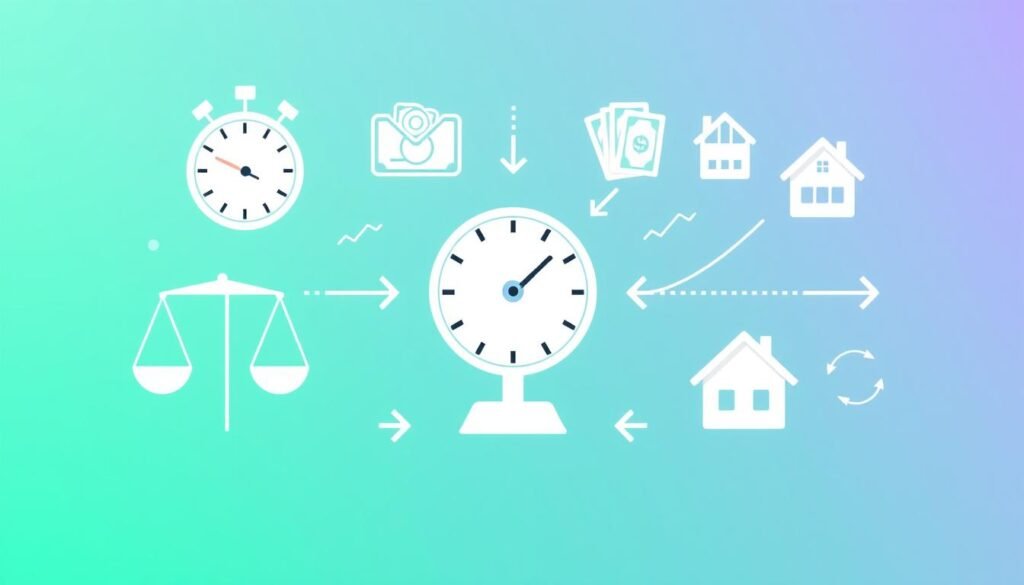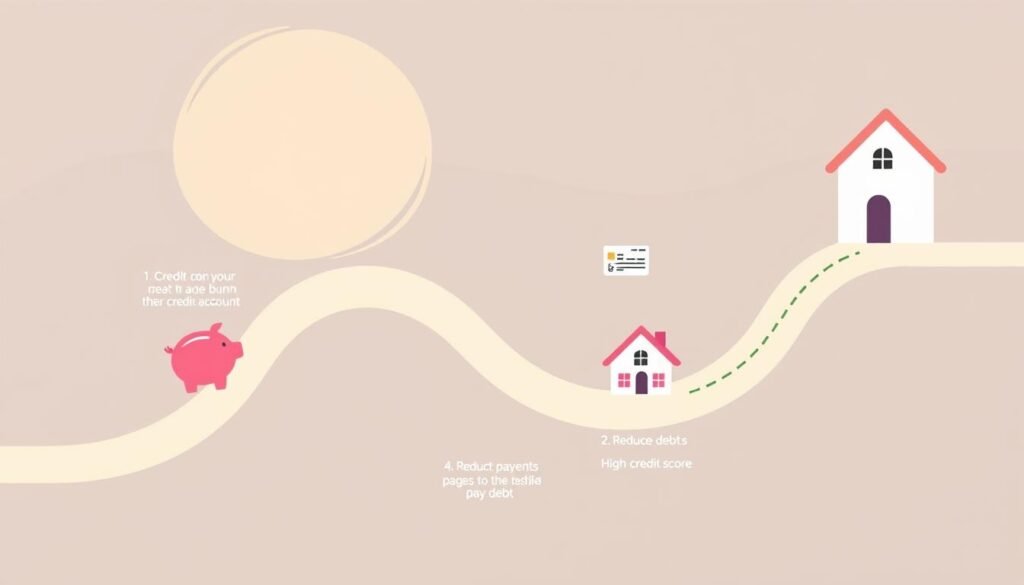This post may contain affiliate links, which means I may earn a commission if you purchase through these links at no extra cost to you
Have you ever caught yourself wondering how long it really takes to build a solid credit history? I definitely have—especially when I realized just how important a strong credit score is for my overall financial health. Whether I was starting from scratch or recovering from past financial missteps, I learned that building a good credit foundation is absolutely essential.
What surprised me most? You can start establishing your credit history in as little as three to six months, just by using credit wisely. Once I understood what actually affects my credit score and how to improve it, things became much clearer—and a lot less overwhelming.
If you’re like me and ready to boost your score with strategies that actually work, you’re in the right place. Let me walk you through some fast and effective tips that made a real difference in my own credit journey.
Table of Contents
ToggleUnderstanding Credit Scores
Credit scores measure how trustworthy you are with money, based on info from your credit report. They reflect things like how well you pay bills, how much of your credit you use, how old your credit accounts are, the kinds of credit you have, and how often you seek new credit.
FICO and VantageScore are well-known credit scoring systems. According to the Consumer Financial Protection Bureau, paying on time and keeping debt low are key. Scores range from 300 to 850, with 850 being the best.
Building a good credit score can take a different amount of time for everyone. New users might get close to 700 in six months to a year with FICO or VantageScore. But, getting above 800 is a longer journey, requiring years of smart credit use.
Here’s a quick look at what affects your credit score:
| Factors | FICO® Impact | VantageScore® Impact |
|---|---|---|
| Payment History | 35% | Highly Influential |
| Credit Utilization | 30% | Highly Influential |
| Length of Credit History | 15% | Moderately Influential |
| New Credit | 10% | Less Influential |
| Credit Mix | 10% | Highly Influential |
Knowing these factors can help you manage your credit better. Keeping credit use under 30% and always paying on time are important. Having various types of credit also helps your score.
Negative marks like late payments can hurt your score for years. Yet, fixing errors, keeping old accounts open, and limiting new credit checks can boost your score slowly.
Factors Affecting Credit Building Timeline
Building credit involves understanding several key factors. These elements can be complex. By managing them well, you can improve your credit score faster.
Payment History
Your payment history is very important. It makes up 35% of your credit score. Paying bills on time boosts your credit positively. This shows why companies like FICO and VantageScore value a good payment record so much.
Credit Utilization
Your credit utilization ratio is also key. It shows how much credit you’re using out of what you have. Keeping this ratio under 30% is recommended for a better score. Managing this well helps your financial growth.
Length of Credit History
The age of your credit history matters. Older accounts are good for your score. They show a long, stable history. It takes a few months to get a score calculated, according to Experian. Over time, older accounts help keep your score stable.
Types of Credit
Having different types of credit helps too. A mix of credit cards, mortgages, and loans shows you can handle debt.

Credit Inquiries
Credit inquiries can affect your score. Each new application can lower your score a bit. So, think carefully before applying for new credit. Experts recommend regular monitoring and planning to keep your score high and your credit healthy.
How Long Does It Take to Build Credit?
Starting a credit score from scratch often takes three to six months. This time lets the big credit bureaus collect the information they need. To build good credit, you must look at several things. These include your payment history and how long you’ve had credit. How you mix different types of credit and how much of it you use matter too.
Keeping up good credit scores is all about smart money moves. Tools like CreditWise from Capital One help track your score. Always paying bills on time is key to avoiding dips in your score. To fix your credit, stay patient and make regular payments. This shows lenders you’re trustworthy.
Getting started? Think about a credit-builder loan or a secured card. These options show you can manage different money matters. Credit-builder loans can help increase your score with on-time payments. With the Discover it® Secured Credit Card, you earn 2% cash back at gas stations and restaurants. This also boosts your credit.
Typically, lenders want to see at least six months of credit history. They do this to get a picture of your money habits. But remember, it generally takes two to six months of activity to begin. This is what FICO and VantageScore say.

Tips to Build Credit Quickly
To boost your credit score quickly, you need a good plan. Taking the right steps can lead to a better credit score fast. Focus on things like paying bills on time, keeping credit use low, adding yourself to another’s account, and opening a secured credit card. This can raise your score a lot.
Paying Bills On Time
Paying on time is super important. It makes up 35% of your FICO® Score, the biggest part. Rod Griffin at Experian says making payments on time can really help your score, especially if it’s low. Missing even one payment can hurt, so set reminders or auto-pay to never be late.
Managing Credit Utilization
To fix your credit, watch your credit use closely. Try to use less than 30% of your limit, but aim for even less. It affects 30% of your FICO® Score, almost as much as payment history.
Becoming an Authorized User
Being added to a family or friend’s card can quickly uplift your score. You’ll gain from their good credit habits without more debt. If they use their card wisely and pay on time, it helps your credit too.
Using a Secured Credit Card
Secured credit cards are great for building or fixing credit. You deposit money that becomes your limit, which keeps the lender safe. Pay on time and use a small amount of your limit to boost your score.



